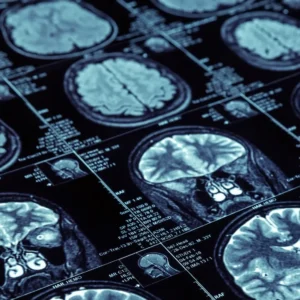Parkinson’s disease, another in a long list of terrible conditions seen more in “developed” countries than in “third-world” countries. Nearly 90,000 people are diagnosed with Parkinson’s in the United States each year. The incidence of Parkinson’s is far higher in North America and Western Europe than in Latin America and Africa. Why is that?
There’s probably a lot of blame to go around. For example, the food system in the US is broken by greed, ignorance and corruption. The amount of refined and processed foods, added ingredients for preservation and addiction, the methods of cooking, the methods of “caring” for the animals we will eventually eat, and much more likely contribute to all diseases.
In addition, the US has higher rates of C-section deliveries and lower rates of breast-feeding, both of which are not good for long-term health. And in general, there are higher rates of antibiotic and PPI use, both of which have a tremendous amount of data showing that they radically worsen the microbiome.
And speaking of the gut, there is an abundance of research linking Parkinson’s to the theorized connection between gastrointestinal dysbiosis, gut permeability, immune activation, oxidation and inflammation, and protein misfolding and aggregation. Also important is that there is evidence and symptoms in the gut years before neurological impact, giving rise to a theory of the vagus nerve as the guilty conduit, connecting the gut to the brain.
Gastrointestinal dysfunction, in particular constipation, effects up to 80% of Parkinson’s patients, and may precede the onset of motor symptoms by years. Idiopathic constipation is one of the strongest risk factors for Parkinson’s. Prolonged intestinal transit time and constipation are associated with neurodegenerative changes in the enteric nervous system. These changes can be found in the earliest stages of Parkinson’s, sometimes years before motor symptoms occur, and therefore have been suggested as a premotor biomarker.
Alpha-synuclein is a protein which is the main component the Lewy bodies – which is the pathological hallmark of Parkinson’s in the brain. Studies show its high abundance IN THE INTESTINE years before first motor symptoms. This is NOT seen in healthy controls. This data, among others, highlights the connection of the health of the gut to the brain, years before Parkinson’s symptoms.
Not only is constipation (an obvious gut symptom) prevalent years before diagnosis and during the disease, but clear changes occur in the microbiome as well. Quite consistently the amazing health-promoting genera Faecalibacterium, Coprococcus, Fusicatenibacter, Roseburia and Blautia are significantly higher in healthy controls, which is to say they are all consistently significantly lower in Parkinson’s subjects. I know. I’ve analyzed all of the human fecal microbiome studies published for Parkinson’s disease. And as the Microbiome Expert, I know that these bacteria are health-promotors.
On the flipside, we see a curios array of bacteria significantly increased in Parkinson’s. For example, we see increases in E coli. This is no surprise. We also see consistent increases in Enterococcus. Also not a surprise, as the genus Enterococcus is loaded with nasty opportunistic pathogens. However the reason it’s high may be surprising. It’s two main species (if not more) have been shown to convert the key Parkinson’s drug L-dopa to dopamine, rendering it unavailable for the brain. This means that L-dopa is a fuel/substrate for these species. In other words, the more L-dopa consumed, the more they grow, hence their higher abundance. You know who else metabolizes L-Dopa? Species from Lactobacillus and Bifidobacterium. Your probiotics. In Parkinson’s fecal microbiome studies, both Lactobacillus and Bifidobacterium are consistently significantly higher in Parkinson’s subjects as compared to healthy controls. Therefore, in contradiction to the advice of others, possibly your doctor, I do NOT recommend the use of conventional probiotics in Parkinson’s. Another new and growingly popular probiotic is Akkermansia muciniphila. It too is consistently significantly higher in Parkinson’s subjects as compared to healthy controls. However the whys and wherefores of this are unknown. To be on the safe side, I also do NOT recommend the use of this probiotic for Parkinson’s patients. Who else is providing this valuable information to you?
If we take a look at the gold standard, a fecal microbiota transplant , what do we see? We see massive improvements in symptoms and large beneficial shifts in the players of the microbiome. Quite a nice correlation, no? Now everyone is not going to get an FMT, but the next best thing is to drive significant change in the microbiome with properly chosen, dosed and blended prebiotics.
In our world as it is, we all now have to be our own health advocates. With a broken government, food and medical system, you need to take charge of your healthcare. So, educate yourself, as best you can. This is why I’ve launched my educational platform. For you. You can find my presentation entitled, “Parkinson’s Disease and the Microbiome” in my Microbiome University tab, and also on my YouTube channel. If you think your health would be well served by addressing your microbiome, you can visit the Protocols tab on my website, and for the mere price of a cup of coffee, you can find a science-based Parkinson´s protocol which may dramatically improve your quality of life.


